When it comes to preventing and treating parasitic infections, understanding the correct Ivermectin dosage for dogs is crucial. Ivermectin is widely used to combat various parasites in dogs, but its dosage and administration must be carefully managed to avoid potential complications.
In this guide, we delve into everything you need to know about Ivermectin dosage for dogs, including its uses, safety considerations, and how to administer it effectively.
Read on to ensure you’re equipped with the knowledge to keep your canine companion healthy and happy.
Disclaimer: Administrating Ivermectin for dogs wrongly can be fatal there for knowing about the safe Ivermectin dosage for dogs is crucial. Ivermectin toxicity is considered a medical emergency. If you believe your dog may be experiencing ivermectin toxicity, contact your local animal hospital immediately.
Ivermectin for Dogs Overview
| Purpose | Treatment and prevention of various parasitic infections in dogs |
| Safe Dosage | 0.024 mg/kg to 0.2 mg/kg |
| Forms | Oral tablets, topical solutions, and injectable formulations. |
| Popular Brand Names | Heartgard® Plus, Ivomec®, Iverhart® |
| Treatment Duration | Depends on the condition being treated |
| Precautions | Dogs with MDR1 gene mutation are sensitive to ivermectin. |
| Side Effects | -Vomiting, diarrhea, drooling, Dilated pupils, tremors, seizures, coma. |
| Drug Interactions | Spinosad, ketoconazole, cyclosporine, certain antibiotics, benzodiazepines. |
| Monitoring | Regular veterinary check-ups recommended |
| Special Notes | Follow veterinarian’s instructions carefully Avoid off-label use without veterinary guidance. |
Is Ivermectin Safe for Dogs?
Yes, Ivermectin can be safe for dogs when used appropriately and under veterinary guidance. It’s commonly used to treat various parasitic infections in dogs, such as heartworm disease and certain types of mites.
However, the dosage is critical because dogs can be sensitive to Ivermectin, especially certain breeds like Collies and related breeds, which can have a genetic mutation making them more susceptible to its effects.
Therefore, it’s crucial to always consult a veterinarian before giving any medication to your furry friend, including Ivermectin.
How Ivermectin Works in Dogs
Dog Ivermectin works by interfering with the nerve and muscle functions of parasites, causing their paralysis and death. This mechanism makes it incredibly effective against a wide range of internal and external parasites, including heartworms, mites, and certain types of ticks.
Ivermectin Dosage for Dogs
The ideal and safe Ivermectin dosage for dogs is 0.024 mg/kg (0.0109 mg/lb) once a month for heartworm prevention. For treating skin parasites in dogs, the dose is 0.3 mg/kg (0.136 mg/lb) once, then repeated in 15 days. For gastrointestinal parasites, the dose is 0.2 mg/kg (0.091 mg/lb) once.
Please remember, the correct Ivermectin dog dosage depends on several factors, including the pup’s weight, age, health status, and the specific condition being treated. It’s crucial to follow your veterinarian’s recommendations closely.
Ivermectin Dosage Chart for Dogs by Weight
| Dog Weight (kg) | Dog Weight (lb) | Ivermectin Dosage for Heartworm Prevention | Ivermectin Dosage for Skin Parasites | Ivermectin Dosage for Gastrointestinal Parasites |
|---|---|---|---|---|
| 1 | 2.2 | 0.024mg | 0.3mg | 0.2mg |
| 2 | 4.4 | 0.048mg | 0.6mg | 0.4mg |
| 5 | 11.0 | 0.12mg | 1.5mg | 1.0mg |
| 10 | 22.0 | 0.24mg | 3.0mg | 2.0mg |
| 20 | 44.0 | 0.48mg | 6.0mg | 4.0mg |
| 30 | 66.0 | 0.72mg | 9.0mg | 6.0mg |
| 40 | 88.0 | 0.96mg | 12.0mg | 8.0mg |
| 50 | 110.0 | 1.20mg | 15.0mg | 10.0mg |
Notes:
- Heartworm Prevention: Dosage is administered once a month.
- Skin Parasites: Dosage is administered once, then repeated in 15 days.
- Gastrointestinal Parasites: Dosage is administered once
Common Brand Names
- Ivomec®
- Heartgard®
- Zimectrin®
- Eqvalan®
- Iverhart®
How Ivermectin for Dogs Is Supplied
- Injectable form: 10 mg/ml and 2.7 mg/ml
- Paste form: 0.153% and 1.87%
- Liquid oral form: 10 mg/ml
- Tablets: 68 mcg, 136 mcg, and 272 mcg
Selecting the safe form of dogs Ivermectin is crucial, as one or more variants of this medication may not be suitable for your canine companion and can be toxic. Make sure to confirm the safe variant of the medicine with your vet first.
Ivermectin (2.7–10 mg/ml) Injectable for Dogs
The ideal dose of Ivermectin 2.7 mg/ml injectable for dogs is 0.0089 ml/kg, and for Ivermectin 10 mg/ml injectable, it is 0.0024 ml/kg. This means a 5 kg canine should be dosed with 0.044 ml of the 2.7 mg/ml injectable and 0.012 ml of the 10 mg/ml injectable.
Ivermectin Injectable Dosage Chart for Dogs
| Dog Weight (kg) | Dog Ivermectin Injectable (2.7 mg/ml) Dosage | Dog Ivermectin Injectable (10 mg/ml) Dosage |
|---|---|---|
| 5 kg | 0.044 ml | 0.012 ml |
| 10 kg | 0.089 ml | 0.024 ml |
| 15 kg | 0.133 ml | 0.036 ml |
| 20 kg | 0.178 ml | 0.048 ml |
| 25 kg | 0.222 ml | 0.060 ml |
| 30 kg | 0.267 ml | 0.072 ml |
| 35 kg | 0.311 ml | 0.084 ml |
| 40 kg | 0.356 ml | 0.096 ml |
Ivermectin Paste (0.153%-1.87%) Dosage Chart for Dogs
| Dog Weight (kg) | Ivermectin 0.153% Paste Dosage | Ivermectin 1.87% Paste Dosage |
|---|---|---|
| 5 | 0.016 ml | 0.006 |
| 10 | 0.031 ml | 0.013 |
| 15 | 0.047 ml | 0.019 |
| 20 | 0.063 ml | 0.026 |
| 25 | 0.078 ml | 0.032 |
| 30 | 0.094 ml | 0.038 |
| 35 | 0.109 ml | 0.045 |
| 40 | 0.125 ml | 0.051 |
Ivermectin Liquid Oral (10 mg/ml) Dosage Chart for Dogs
| Dog Weight (kg) | Ivermectin Liquid Dosage |
|---|---|
| 5 kg | 0.012 ml |
| 10 kg | 0.024 ml |
| 15 kg | 0.036 ml |
| 20 kg | 0.048 ml |
| 25 kg | 0.060 ml |
| 30 kg | 0.072 ml |
| 35 kg | 0.084 ml |
| 40 kg | 0.096 ml |
Ivermectin 68 mcg. 136 mcg, 272 mcg Tablets Dosage Chart for Dogs
| Weight (kg) | 68 mcg Tablets | 136 mcg Tablets | 272 mcg Tablets |
|---|---|---|---|
| 5 | 1 Tablet | – | – |
| 10 | 3 Tablets | 1 Tablet | – |
| 15 | – | 2 Tablets | 1 Tablet |
| 20 | – | 3 Tablets | 1 Tablet |
| 25 | – | – | 2 Tablets |
| 30 | – | – | 2 Tablets |
| 35 | – | – | 3 Tablets |
| 40 | – | – | 3 Tablets |
Note: It’s recommended to consult with a veterinarian before administering any medication to ensure the correct and safe dosage for your dog.
Ivomec® and Heartgard® Dosage for Dogs
Ivomec® and Heartgard® are trusted brands for veterinary use. The veterinarian-recommended dosage of Ivomec® and Heartgard® is 0.024 mg/kg minimum dose and 0.2 mg/kg maximum dose.
Always start with the lower dose and increase the dose with veterinary advice only.
What is Ivermectin Used for in Dogs?
- Heartworm prevention
- Treatment of ear mites
- Treatment of mange (sarcoptic and demodectic)
- Treatment of intestinal parasites (hookworms and roundworms)
Side Effects
Mild Side Effects:
- Vomiting
- Diarrhea
- Decreased appetite
- Lethargy
Moderate to Severe Side Effects:
- Drooling
- Dilated pupils
- Disorientation
- Tremors
- Seizures
- Coma
Precautions
- Some dog breeds, particularly herding breeds like Collies, Australian Shepherds, Shelties, and Old English Sheepdogs, may have a genetic mutation (MDR1 gene mutation) that makes them more susceptible to ivermectin toxicity. A genetic test is available to determine if a dog carries this mutation.
- Always follow the veterinarian’s dosage recommendations. The dose for heartworm prevention is much lower than the dose used for treating other types of parasites. An overdose can be toxic and potentially fatal.
- Canines with certain health conditions, such as liver or kidney disease, may require adjusted doses or may need to avoid ivermectin altogether.
- Ivermectin in digs can interact with other medications, such as ketoconazole, erythromycin, and certain other antiparasitic drugs. Inform your veterinarian of all medications and supplements your pooch is taking.
Ivermectin Toxicity in Dogs
Ivermectin is a medication commonly used to treat various parasitic infections in dogs. However, it can be toxic to some dogs, particularly those with a genetic mutation known as the MDR1 (Multi-Drug Resistance 1) gene mutation.
This mutation is more prevalent in certain breeds, such as Collies, Australian Shepherds, Shetland Sheepdogs, and Old English Sheepdogs.
Symptoms of Ivermectin Toxicity
Signs of ivermectin toxicity can vary depending on the dose and the dog’s sensitivity. Common symptoms include:
- Dilated pupils
- Drooling
- Vomiting
- Tremors
- Seizures
- Disorientation
- Coma
Treatment of Ivermectin Toxicity
If you suspect your dog has ivermectin toxicity, it’s crucial to seek veterinary care immediately. Treatment typically involves:
- Inducing vomiting if the ingestion was recent
- Administering activated charcoal to limit absorption
- Providing supportive care such as intravenous fluids and medications to control symptoms
- Hospitalization for severe cases, possibly with intensive care
Prevention
To prevent ivermectin toxicity in canines, consider the following measures:
- Test for the MDR1 gene mutation if your dog is a breed known to be at risk.
- Follow dosage instructions carefully and consult your veterinarian before administering any medication.
- Avoid giving your puppy medications meant for other animals or humans.
What to Do in Case of Suspected Overdose
If you suspect your dog has been overdosed with ivermectin or is showing signs of toxicity, seek veterinary attention immediately.
Early treatment is crucial and may include inducing vomiting, administering activated charcoal to limit absorption, and supportive care to manage symptoms.
Safe Use Guidelines
- Administer dogs ivermectin only under the guidance and prescription of a veterinarian.
- Be aware of your dog’s breed and any potential sensitivity to the drug.
- Monitor your pooch closely for any adverse reactions after administration.
- Regularly consult your veterinarian for heartworm prevention and parasite control strategies suitable for your furry friend.
Does Ivermectin Interact with any other Dog Medications?
Yes, ivermectin in dogs can interact with other medications, leading to increased risk of toxicity or reduced efficacy of treatments. Some notable interactions include:
Medications That May Interact with Ivermectin
- Spinosad (Comfortis, Trifexis):
- Used for flea control.
- Concurrent use can increase the risk of neurological side effects like tremors and seizures.
- Ketoconazole:
- An antifungal medication.
- It can increase ivermectin levels in the bloodstream, raising the risk of toxicity.
- Cyclosporine:
- An immunosuppressant used for various conditions, including autoimmune diseases.
- Can increase ivermectin levels, enhancing the risk of side effects.
- Certain antibiotics (e.g., erythromycin, clarithromycin):
- These can interfere with the metabolism of ivermectin, increasing its concentration in the body.
- Benzodiazepines (e.g., diazepam, midazolam):
- These can exacerbate the sedative effects of ivermectin.
- Other macrocyclic lactones (e.g., milbemycin, selamectin):
- These are often used in combination treatments for parasites and can increase the risk of ivermectin toxicity.
Related Posts:
Which Dogs Should Not Take Ivermectin
Ivermectin can be harmful to certain dog breeds or individuals at high doses, especially those with a genetic mutation that makes them sensitive to the drug.
Breeds commonly affected include Collies, Australian Shepherds, Shetland Sheepdogs, and related herding breeds.
It’s crucial to consult with a veterinarian before administering any medications like ivermectin to your dog, especially if they belong to one of these breeds.
References:
- https://www.petmd.com/dog/poisoning/ivermectin-toxicity-in-dogs
- https://www.sciencedirect.com/topics/agricultural-and-biological-sciences/ivermectin
- https://www.onevet.ai/ivermectin-for-dogs/
- https://www.msdvetmanual.com/pharmacology/systemic-pharmacotherapeutics-of-the-integumentary-system/antiparasitic-drugs-for-integumentary-disease-in-animals
- https://www.petplace.com/article/drug-library/drug-library/library/ivermectin-ivomec-heartgard-for-dogs-and-cats
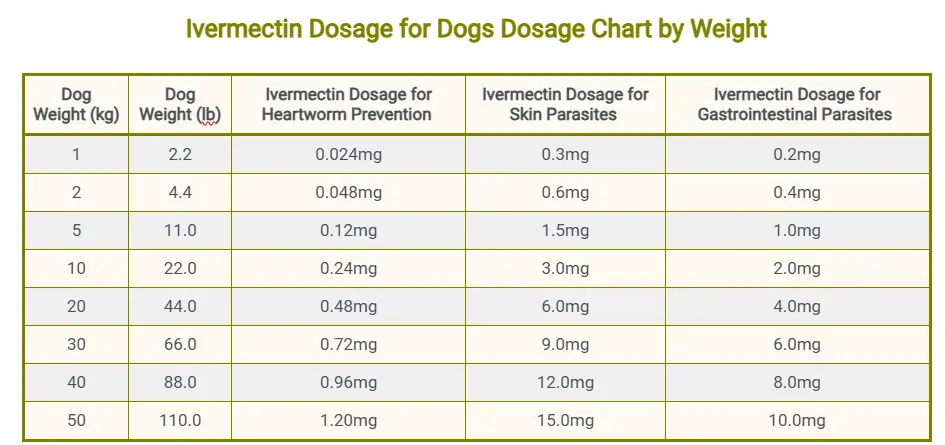
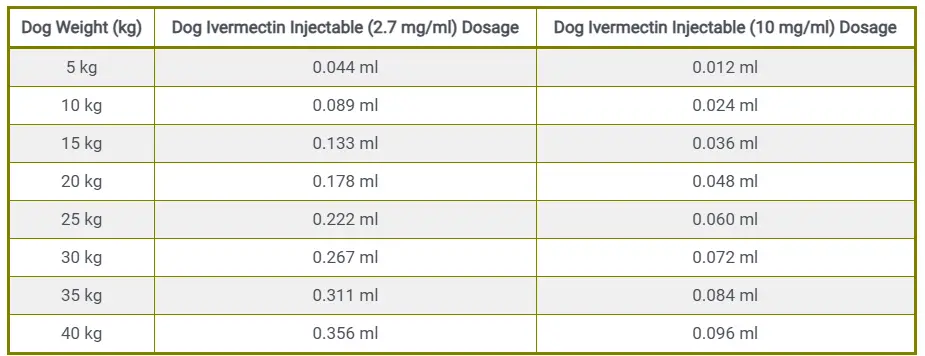
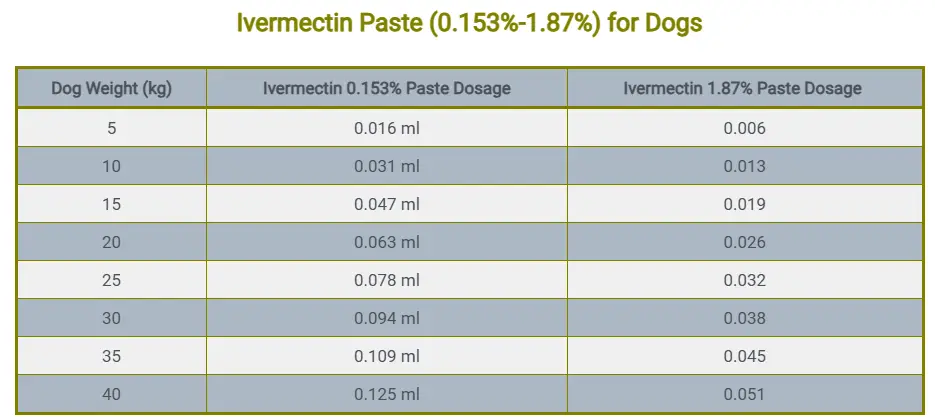
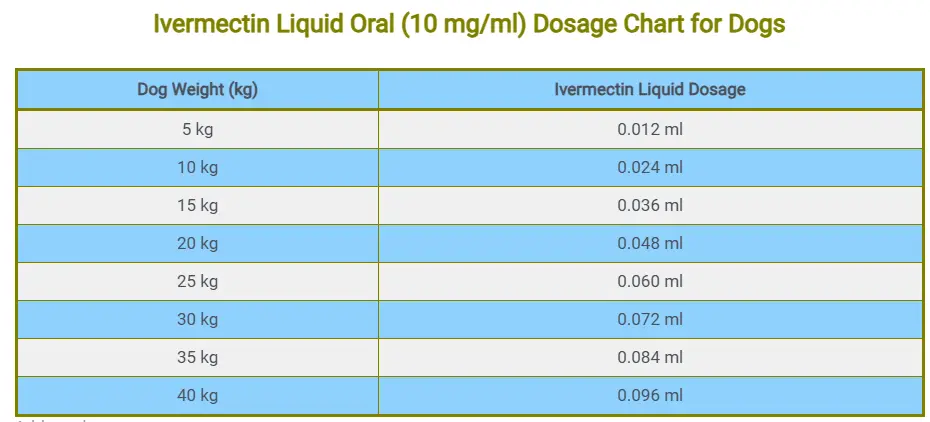
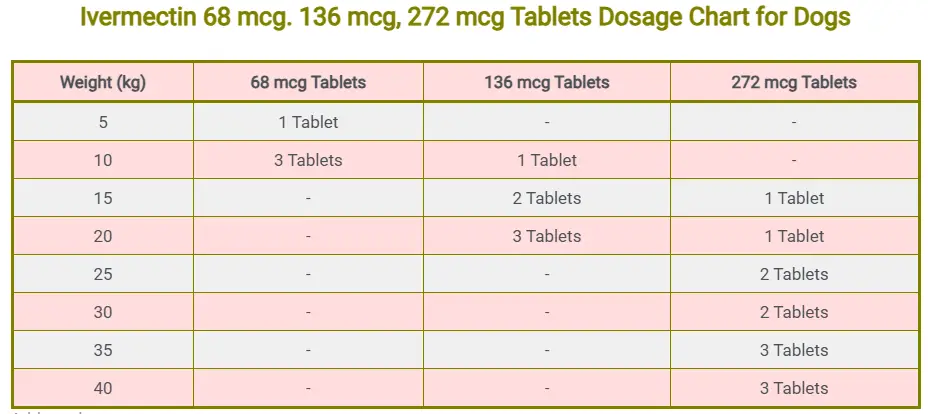


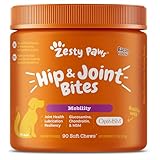






![Can Dogs Eat Blood? 7 Side Effects [Expert Opinion]](https://petskor.com/wp-content/uploads/2022/04/Webp.net-resizeimage-12.jpg)
